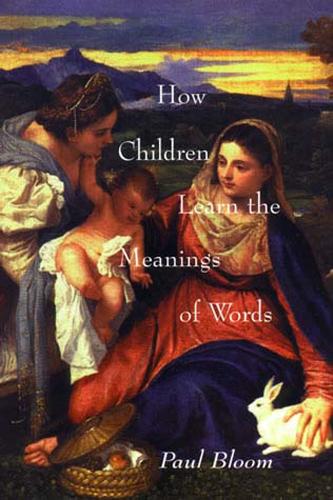
How Children Learn the Meanings of Words
(Paperback)
Publishing Details
How Children Learn the Meanings of Words
By (Author) Paul Bloom
MIT Press Ltd
MIT Press
25th January 2002
United States
Classifications
Tertiary Education
Non Fiction
Language acquisition
Cognition and cognitive psychology
401.93
Physical Properties
Paperback
314
Width 152mm, Height 229mm, Spine 16mm
431g
Description
How do children learn that the word "dog" refers not to all four-legged animals, and not just to Ralph, but to all members of a particular species How do they learn the meanings of verbs like "think", adjectives like "good", and words for abstract entities such as "mortgage" and "story" The acquisition of word meanings is one of the fundamental issues in the study of mind. According to Paul Bloom, children learn words through sophisticated cognitive abilities that exist for other purposes. These include the ability to infer others' intentions, the ability to acquire concepts, an appreciation of syntactic structure, and certain general learning and memory abilities. Although our researchers have associated word learning with some of these capacities, Bloom is the first to show how a complete explanation requires rich conceptual, social and linguistic capacities interacting in complex ways. This book requires no background in linguistics or philosophy and is written in a clear, engaging style. Topics include the effects of language on spatial reasoning, the origin of essentialist beliefs and the young child's understanding of representational art. The book should appeal to general readers interested in language and cognition as well as to researchers in the field.
Reviews
... this book is likely to have a profound impact on the field of child language.
-- Anne Bezuidenhout * Metapsychology Online Review *Author Bio
Paul Bloom is Professor of Psychology at Yale University.
